The Greater Manchester Good Employment Charter was keen to build on the success of last year’s Good Employment Week. They wanted to present Manchester employees with an easily accessible game to highlight the theme of equality, diversity and inclusion.
The Charter commissioned Corporation Pop to design and build a 3D, web-based game for commuters which challenged them to think about the highs and lows of working life.
The Good Employment Charter
The Mayor of Greater Manchester launched the Good Employment Charter in 2019. It’s a voluntary membership and assessment scheme that aims to raise employment standards across the county.
It is supported annually by the Good Employment Week. Aimed squarely at employees, the Week sets out to increase awareness of good employment practices. In 2024 the theme was the importance of equality, diversity and inclusion (EDI).
As part of the Week’s programme, the Charter commissioned a game to engage people travelling on public transport. They envisaged a simple mobile game, accessed with a QR code, which helped educate commuters about inequality in the workplace. It would point out the barriers that sometimes exist and highlight what good practice should look like.
It was important players could complete the game during a short commute and that results were easy to share. Equally important — as this was, after all, a game — was the need for it to be fun.
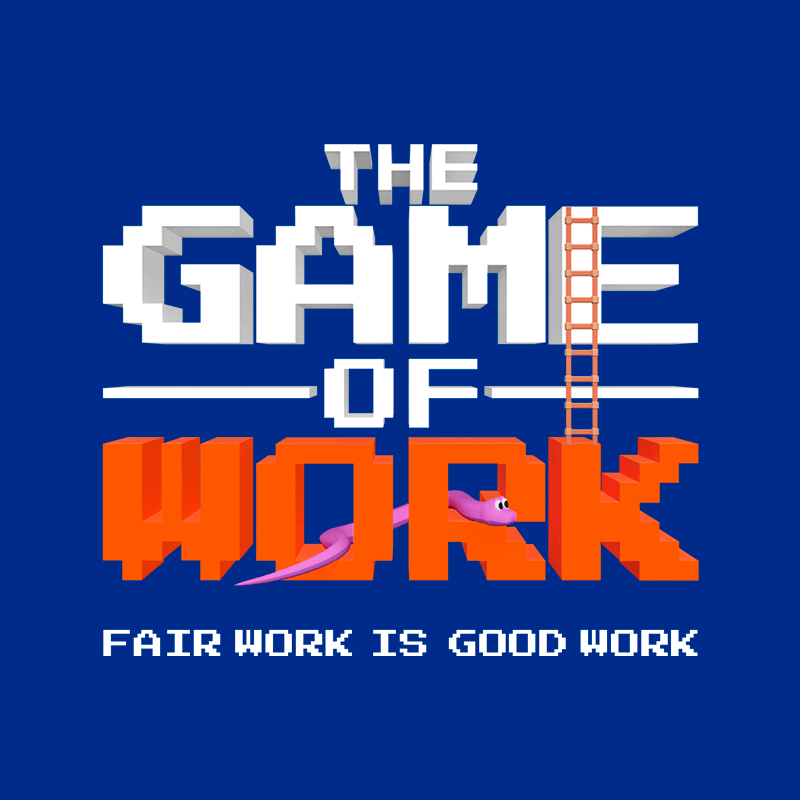
Naming & logo brand design
In-game UI Iconography
The game
Players scan a QR code on the back of a tram seat, or in marketing materials, to activate the game. It opens in their web browser without the need for a third party app download.
Snakes and ladders
The first thing players see is a game board with 100 squares which expands vertically to create a tower. Snakes then slither up and ladders drop down, populating the grid. The medium or snakes and ladders represents the challenges and opportunities present in everyone’s career path.
With a roll of the dice, the player proceeds along the board. The game then presents them with life events which might impede or speed up their progress. Events range from landing a job interview, to asking for a pay rise and facing redundancy. To make things really juicy, each event has three potential outcomes: positive, neutral and negative. A request for a pay rise could go one of three ways depending on your manager and the company you work for.
Influences such as nepotism, discrimination and unprofessional behaviour can rear their ugly heads, tracking the realities of working life. Additionally, there are the snakes and ladders of daily work to contend with. A career path is rarely straightforward.
Two other characters also play the game, so three playing pieces move along together on the same roll. One player has an advantage, one is neutral and one is disadvantaged based on the outcome of the career events. It’s fascinating to watch how three employees, who start their career paths together, vary wildly in their outcomes. And that’s really the crux of the game. Who reaches retirement on square 100 is anybody’s guess.
Design, UX and UI
The large age range of potential users, who might be anything from 18 to 80 years old, influenced our design. In order to engage as many people as possible, it had to be quick to understand and easy to play. We started by mapping the entire game flow from the moment someone scanned the QR code right to the end screen.
Designing a workplace-themed game presented challenges because of the sensitivity of the topic and the diverse work experiences of our target audience. Creating inclusive gameplay that resonated with a broad range of users required careful consideration, constant iteration and complex gameplay choices.
Colour palette
We borrowed and developed the brand palette and colours from the existing brand. We chose a blue and orange combination that worked well and helped bring out the game’s retro look and feel. For the players, we used an RGB (Red, Green and Blue) palette. These are the primary colour models used in phone and computer screens.
Game cards
We designed game cards using specific elements and layouts based on the type of card. For example the player select or event card. We worked on the cards iteratively constantly updating them as we received feedback from game-play.
Originally, event cards didn’t include the player-piece, however, upon review, we thought this might cause confusion and included them. We also realised players were not sure which card was theirs, so we added a ‘You’ bar at the top.
Style
We used a pixelated, 8-bit retro game visual style which most people would recognise. We pixelated buttons, tooltips, card borders, etc, following a 7×7 pixel grid and tweaked the corners to emphasise the style.
Finally, we continued the pixelation across all the icons and elements such as the loading bar. This offered the game continuity and made the retro 8-bit style feel more cohesive.
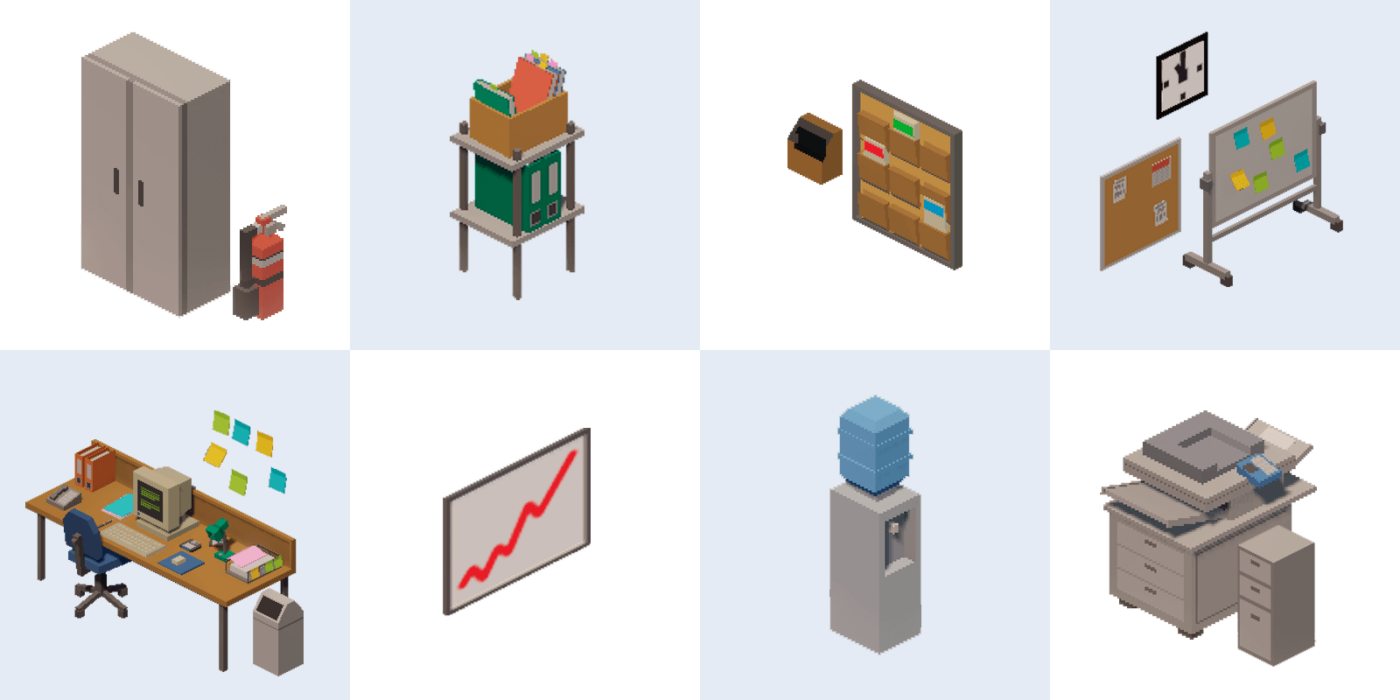
Game board components with 8-bit pixelation
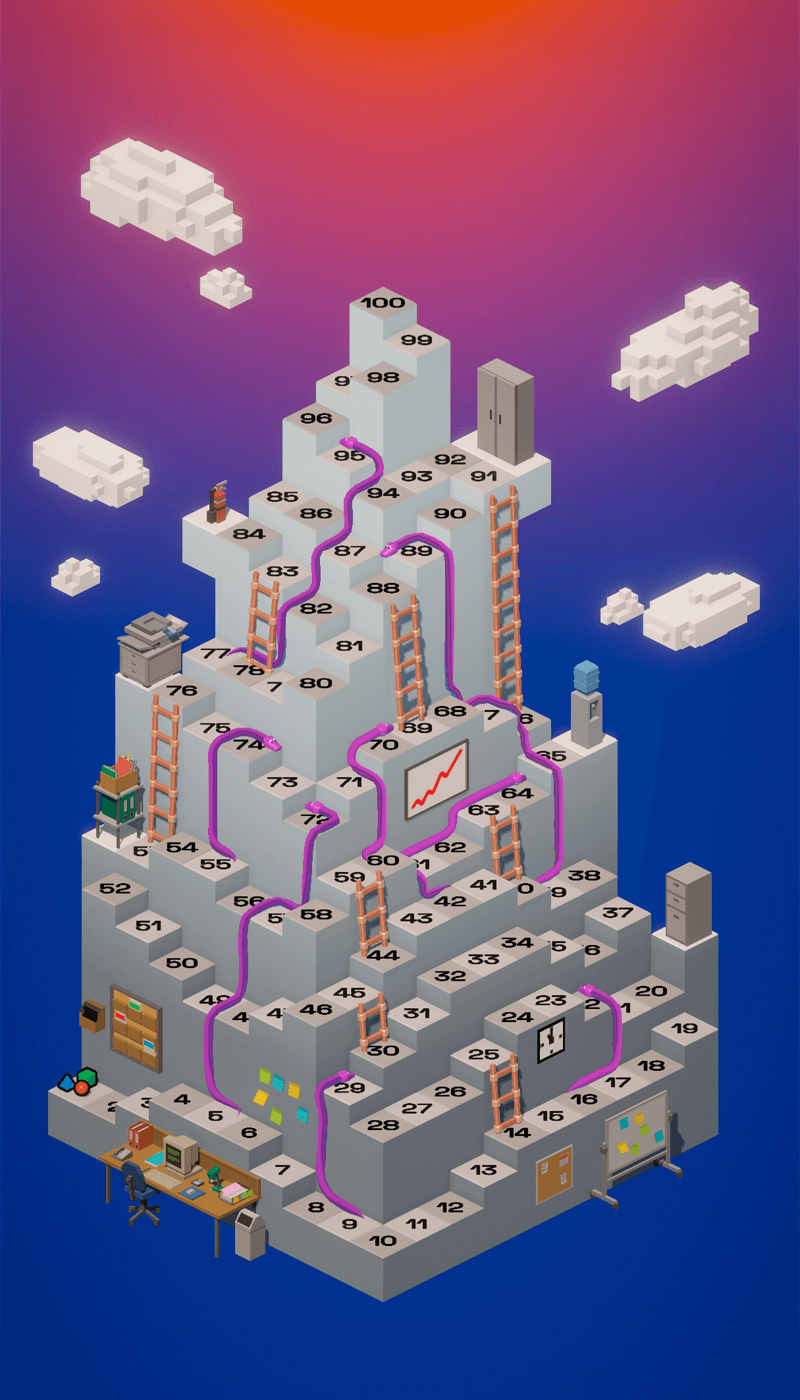
Game board
Artwork
From early on we knew we wanted to go with a recognisable, gamey visual style. This would gamify things even further and make the learnings a little more subtle.
The game is fully 3D, however we used a custom full screen shader within Unity to apply a pixel-effect. It went over the top of everything being rendered, giving the pixelated look.
This came with a few unique challenges. It meant small details on a 3D model would get lost and even muddy pixels making the object look distorted.
Additionally, we had to consider how light would react to a model. We needed to understand how it would reflect once we applied the pixel shader. In the example with the cardboard box for instance, we bevelled its edges. This meant that it caught the light and gave a nice edge highlight and helped differentiate different sides.
Lastly, we added a custom outline shader which took into account the shape of a 3D model. The shader expanded outwards and created a black outline to complete the pixel look.
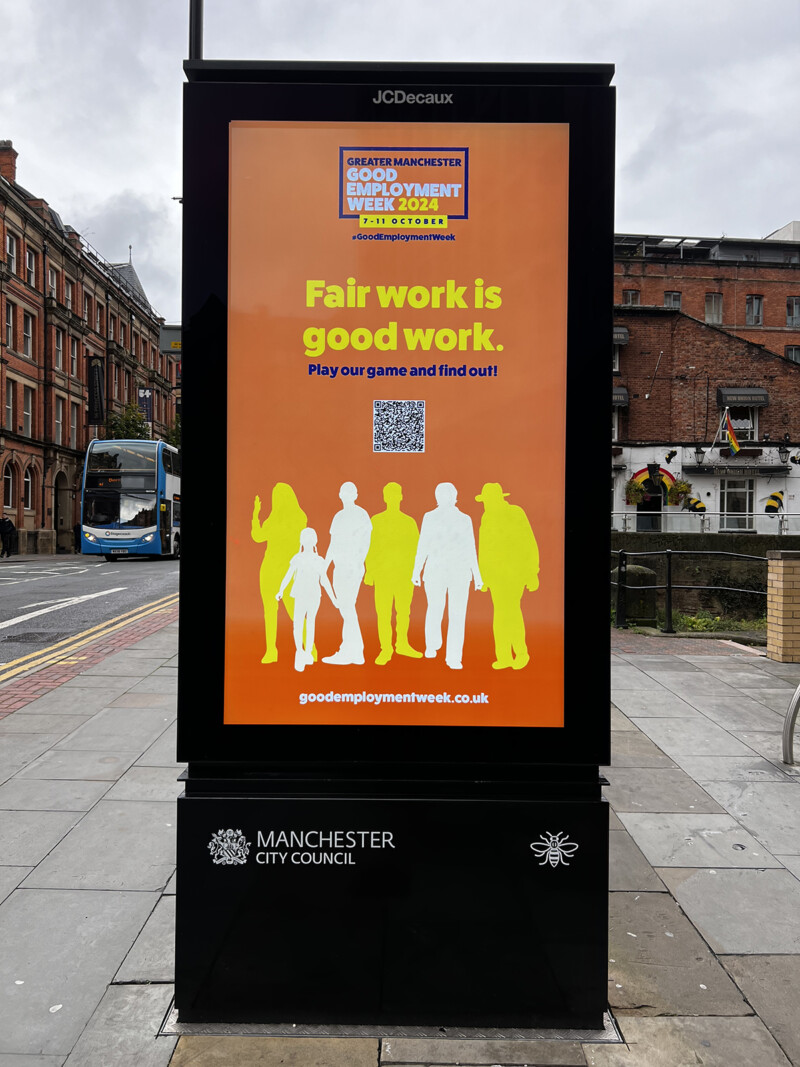
Bus ad CTA activation
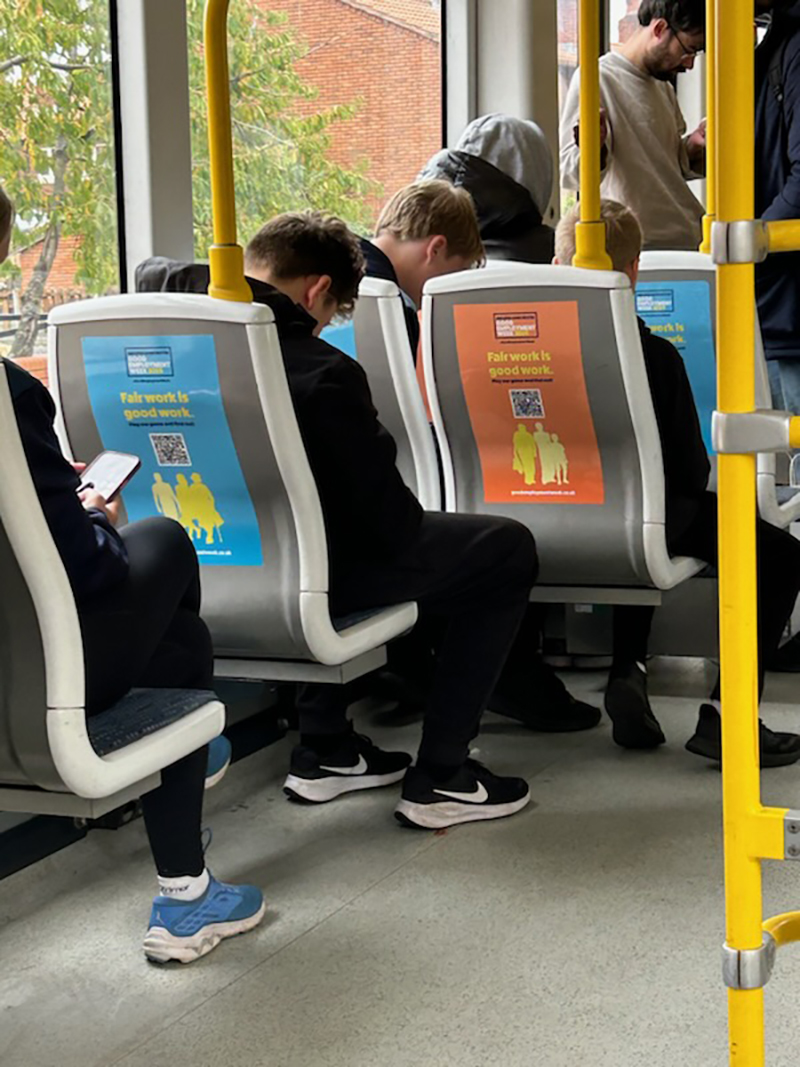
On tram CTA activation
The finished product
Corporation Pop has designed and developed a game for the Good Employment Charter which addresses complex social issues with an easy to understand game mechanic. Gamification and playing are often the best way to absorb tricky concepts. In this project, a game was an unobtrusive means of helping people learn how the actions of others directly relate to them.
The Game of Work was a pivotal part of Good Employment Week 2024. We’re incredibly proud to see it being promoted across Greater Manchester and people using it on their commutes.
The Game of Work 'behind the scenes'
“Their creative approach and their values completely aligned with our own.”
Ian MacArthur
Director, GM Good Employment Charter


